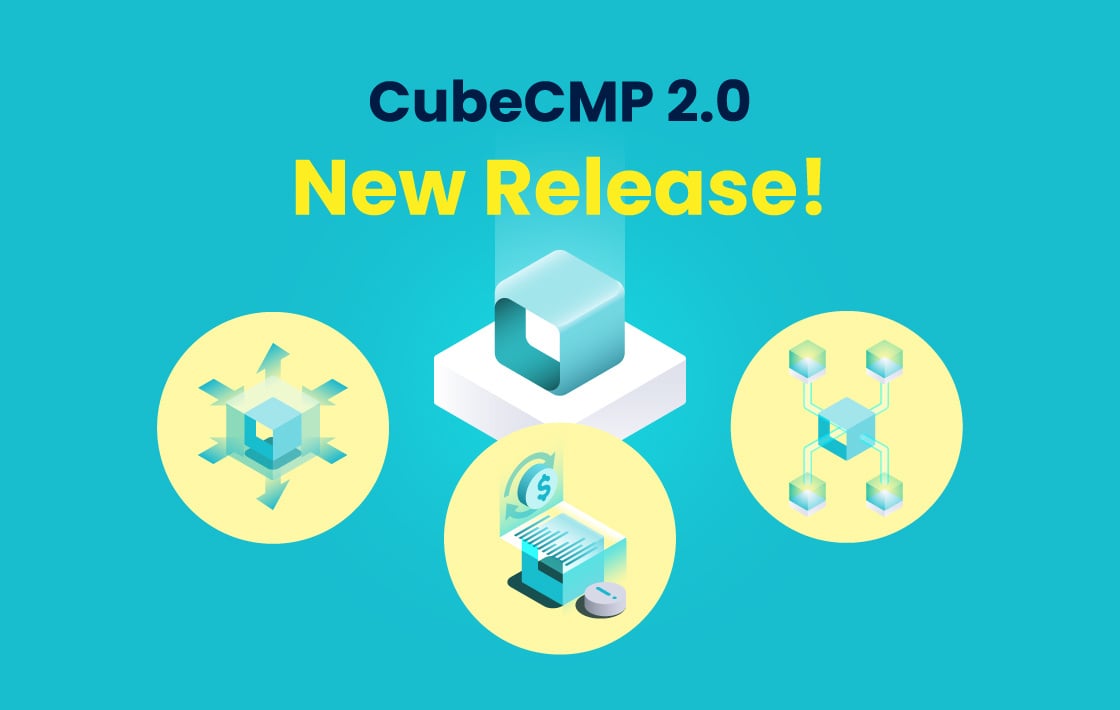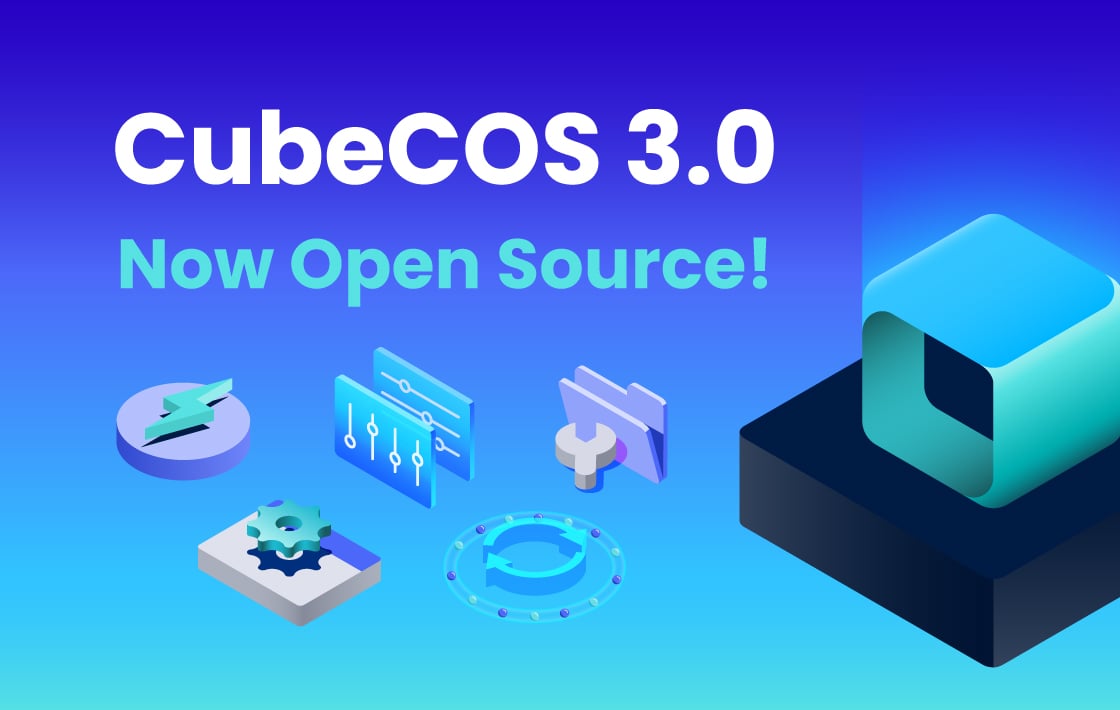Source: DIGITIMES
At the recent "Bigshare 2025" technology exchange summit, Bigstack officially announced the open sourcing of CubeCOS, fulfilling its prior commitment by making the platform freely available for global customers via GitHub. This move significantly broadens enterprise options in IT infrastructure, helping businesses break free from vendor lock-in and accelerate infrastructure modernization to fully embrace the new era of edge, cloud, and AI integration.
/Events%20and%20News/IMG_6937.jpg?width=6000&height=3368&name=IMG_6937.jpg) Image: On May 27, Bigstack hosted its annual technology exchange event "Bigshare 2025," discussing how the Cube product line leverages open source technologies to continuously improve and support enterprises in accelerating infrastructure modernization.
Image: On May 27, Bigstack hosted its annual technology exchange event "Bigshare 2025," discussing how the Cube product line leverages open source technologies to continuously improve and support enterprises in accelerating infrastructure modernization.
Bigstack Co-Founder and Executive Vice President, Mr. Guo Jinkai, emphasized that Bigstack is a Taiwanese original manufacturer focused on developing enterprise-grade IT infrastructure cloud virtualization software platforms, positioned as a local alternative to VCF. The company is dedicated to building autonomous and controllable cloud solutions. Its flagship product, CubeCOS, is now officially open source, enabling enterprises to effectively address challenges posed by rising costs of commercial virtualization software.
In Japan, for example, many large trading companies have begun to show interest in CubeCOS’s open source technology and are actively evaluating its feasibility for adoption, aiming to reduce IT budget pressures. This not only helps Bigstack expand into international markets but also highlights the positive impact of Taiwan’s independent software development.
/Events%20and%20News/IMG_6766_s.jpg?width=2000&height=1123&name=IMG_6766_s.jpg) Image : Bigstack Co-Founder and Executive Vice President, Kai Kuo, opened the event by revisiting last year’s announcement of the open source initiative. With lighthearted humor, he introduced the concept of open source and shared Bigstack’s operating philosophy of “taking from open source and giving back to open source”: “Technology should not be monopolized, but shared and practiced.”
Image : Bigstack Co-Founder and Executive Vice President, Kai Kuo, opened the event by revisiting last year’s announcement of the open source initiative. With lighthearted humor, he introduced the concept of open source and shared Bigstack’s operating philosophy of “taking from open source and giving back to open source”: “Technology should not be monopolized, but shared and practiced.”
Looking at the enterprise IT landscape, whether it is the already mature trends of digitalization and cloud adoption or the current surge of AI integration, all developments fundamentally rely on a robust infrastructure. It is foreseeable that CubeCOS will become a critical platform underpinning enterprise AI applications.
To this end, Bigstack invited Dr. Wang Bangjie, Head of the Information and Communications Research Division at the Industrial Technology Research Institute (ITRI), to share insights on “Next-Generation Computing Architectures and AI Applications.” He highlighted that the deployment of large language models (LLMs) generates immense resource allocation challenges, necessitating software-defined memory management and all-optical communication networks to enhance model training efficiency. He anticipates that future AI computing will evolve toward dynamic resource allocation and hybrid architectures—directions that perfectly align with CubeCOS’s development roadmap.
/Events%20and%20News/DSC04544.jpg?width=2000&height=1126&name=DSC04544.jpg) Image: Dr. Pang-Chieh Wang, Head of the Information and Communications Research Division at the Industrial Technology Research Institute (ITRI), shared insights on “Next-Generation Computing Architectures and AI Applications.” ITRI has developed an AI application resource recommendation engine that leverages open databases such as MLPerf, using a chat interface to recommend optimal resource allocation.
Image: Dr. Pang-Chieh Wang, Head of the Information and Communications Research Division at the Industrial Technology Research Institute (ITRI), shared insights on “Next-Generation Computing Architectures and AI Applications.” ITRI has developed an AI application resource recommendation engine that leverages open databases such as MLPerf, using a chat interface to recommend optimal resource allocation.
CubeCOS 3.0 Debuts, Leading a New Era of Intelligent Cloud Experience Innovation
At the technology exchange summit, the official unveiling of CubeCOS 3.0 attracted significant attention. Bigstack Product Manager and Designer Gisele Chiang stated that the new version not only upgrades existing features but also enhances the overall visual design. For example, the previous Notifications feature has been evolved into Triggers, allowing users to set flexible alert rules and automate responses.
The event management system has also been strengthened with new practical features such as a search box, filters, and analytic charts, making debugging faster and more intuitive. Additionally, cluster health management has seen a major upgrade, evolving from a “view-only” function to “one-click diagnosis and repair,” greatly simplifying IT maintenance workflows.
/Events%20and%20News/IMG_9708_s.jpg?width=2000&height=1123&name=IMG_9708_s.jpg) Image: Bigstack Product Manager and Designer Gisele Chiang highlighted that the new CubeCOS version not only upgrades existing features but also enhances the overall visual design.
Image: Bigstack Product Manager and Designer Gisele Chiang highlighted that the new CubeCOS version not only upgrades existing features but also enhances the overall visual design.
In addition to improving legacy functions, CubeCOS 3.0 introduces numerous new capabilities. For example, it integrates Tunings into a graphical interface, allowing users to adjust system settings easily in three simple steps—eliminating the need for complex CLI operations.
It also offers a unified Support Files management interface, making it easier for IT operators to create or locate required files. CubeCOS 3.0 reintegrates the OpenStack Skyline dashboard and features a brand-new COSMOS visual identity, delivering a more user-friendly UI design that makes operation more intuitive and smooth.
Notably, to let attendees experience CubeCOS 3.0’s new features firsthand, a dedicated demo area was set up at the event. Participants were encouraged to engage in hands-on tasks such as logging into Skyline or quickly locating system events at various levels—including System, Host, or Instance—using Event ID and filtering functions, showcasing the platform’s efficient performance.
CubeCMP 2.0 and CubeVDI Empower Hybrid Cloud and Remote Work
Next on stage, Bigstack Pre-Sales Solution Consultant Nate Jen introduced CubeCMP 2.0 as the optimal enterprise-grade hybrid cloud solution built on CubeCOS, offering highly flexible resource orchestration capabilities.
One notable enhancement is the addition of Auto Scaling Groups (ASG), enabling enterprises to automatically scale resources up or down based on application scenarios—preventing unnecessary resource consumption. The updated billing module also enhances IT cost visibility, supporting features such as multi-tenant quota settings, overage alerts, and automated monthly invoice generation to streamline financial management for IT operations.
/Events%20and%20News/IMG_6967_s.jpg?width=2000&height=1123&name=IMG_6967_s.jpg) Image: Bigstack Pre-Sales Solution Consultant Nate Jen used comic-style visuals to illustrate how CubeCMP 2.0, built on CubeCOS, delivers flexible resource orchestration and IT cost transparency. With support for ASG, automated billing, and multi-tenant management, it is the ideal enterprise solution for hybrid cloud deployments.
Image: Bigstack Pre-Sales Solution Consultant Nate Jen used comic-style visuals to illustrate how CubeCMP 2.0, built on CubeCOS, delivers flexible resource orchestration and IT cost transparency. With support for ASG, automated billing, and multi-tenant management, it is the ideal enterprise solution for hybrid cloud deployments.
Bigstack Senior Account Manager Howard Liu then introduced the CubeVDI virtual desktop solution, highlighting its ability to enhance both security and operational efficiency. CubeVDI enables employees to securely access remote desktops anytime, anywhere, and safeguards sensitive data through user isolation and non-persistent data architecture.
/Events%20and%20News/DSC04798_s.jpg?width=2000&height=1125&name=DSC04798_s.jpg) Image: Bigstack Senior Account Manager Howard Liu explained how CubeVDI ensures a highly secure virtual desktop experience using non-persistent data and user isolation technologies—protecting enterprise data while supporting the new norm of flexible, remote work.
Image: Bigstack Senior Account Manager Howard Liu explained how CubeVDI ensures a highly secure virtual desktop experience using non-persistent data and user isolation technologies—protecting enterprise data while supporting the new norm of flexible, remote work.
Bigstack Chief Operating Officer Gary Hsueh used storytelling scenarios to vividly illustrate how the Cube product suite addresses key IT operations pain points. For example, CubeCOS accelerates issue resolution through its one-click repair functionality and supports flexible GPU scaling to ensure smoother AI training workflows.
CubeCMP adds agility to enterprise application platforms by supporting App as a Service and auto-scaling capabilities. CubeVDI ensures sensitive user data never resides locally and strengthens network access control. Meanwhile, CubeCOS for Edge, designed for lightweight deployment, enables branch offices to easily scale essential IT infrastructure—such as launching virtual machines, managing events, creating container environments, and initiating AI workloads.
/Events%20and%20News/DSC04856_s.jpg?width=2000&height=1126&name=DSC04856_s.jpg) Image: Bigstack COO Ben Hsueh used a series of animated scenarios to simulate one-click repair, flexible AI training, auto-scaling, and edge deployments—demonstrating how the full Cube product suite enables seamless, modern enterprise IT operations.
Image: Bigstack COO Ben Hsueh used a series of animated scenarios to simulate one-click repair, flexible AI training, auto-scaling, and edge deployments—demonstrating how the full Cube product suite enables seamless, modern enterprise IT operations.
The summit concluded with a keynote by Yu-Heng Su, Head of Developer Relations at Bigstack. He revisited the journey toward CubeCOS open sourcing and explained how its core technology, Hex Bedrock, simplifies cluster setup and configuration management, while also standardizing both API and CLI operations. Now released under the Apache License 2.0, CubeCOS empowers global developers to freely use, modify, and distribute the software—fostering collaborative innovation across the open-source community.
/Events%20and%20News/DSC049212_s.jpg?width=2000&height=1148&name=DSC049212_s.jpg) Image: Yu-Heng Su, Head of Developer Relations at Bigstack, announced the open source release of CubeCOS under Apache 2.0. Powered by Hex Bedrock, it simplifies cluster configuration and unifies CLI/API operations—opening the door for global co-creation of a vibrant new ecosystem.
Image: Yu-Heng Su, Head of Developer Relations at Bigstack, announced the open source release of CubeCOS under Apache 2.0. Powered by Hex Bedrock, it simplifies cluster configuration and unifies CLI/API operations—opening the door for global co-creation of a vibrant new ecosystem.
Driven by the vision of delivering "a powerful open source cloud in the palm of your hand," Bigstack continues to encourage active participation from the technical community in advancing enterprise cloud virtualization technologies. With the open source release of CubeCOS, global enterprises now have access to a more flexible, secure, and efficient IT infrastructure—paving the way for accelerated adoption of AI, edge computing, and hybrid cloud applications.


/logos/github.png)



